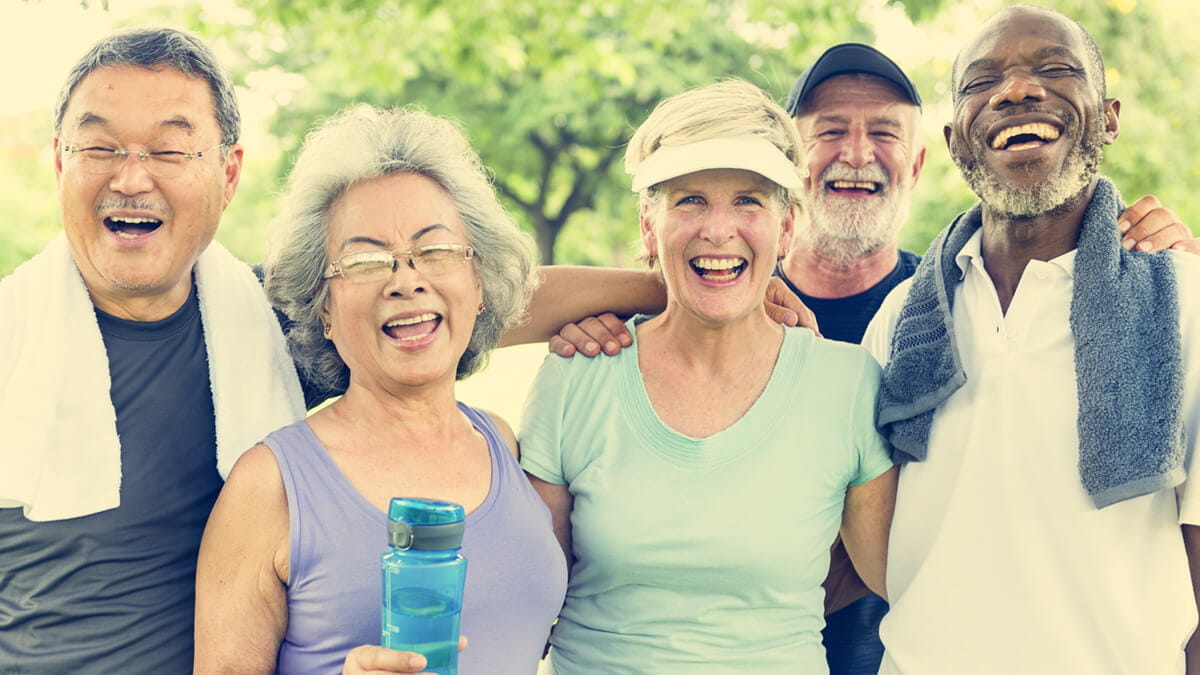Between 2010 and 2050, the number of U.S. adults over the age of 65 is expected to more than double, reaching 88.5 million.1 This large increase in elderly Americans will require an equally large increase in facilities and people tasked with caring for the unique—sometimes debilitating—health and mental issues faced by those in their later years. In particular, those in the human and social services field will have a vital role to play.
What can those in human and social services do to improve the lives of the elderly? One important service they can provide is to help the elderly learn how to maintain their independence. In the U.S., independence is closely linked to an older adult’s overall health and well-being,2 so remaining independent can help the elderly remain healthier and happier. If you’re thinking about starting or advancing a human services career, there’s a lot you can do to help the elderly maintain their independence. Here are four of the best ways to help:
Promote Safety
Physical ailment and/or injury can significantly impact an elderly person’s ability to remain independent. While some of the degenerative aspects of aging are hard to prevent, accidents are not—it just takes an awareness of how accidents happen and how they can be prevented.
One of the most common accidents suffered by the elderly is falling. In fact, each year, one in every four people over the age of 65 will fall.3 However, by helping the elderly take simple safety measures—like securing rugs, installing handrails in bathrooms, repairing uneven flooring, and using a cane or walker—you can help them significantly reduce the risk of falling. Other safety measures you should encourage the elderly to take include maintaining smoke and fire alarms, keeping medications properly sorted, and outfitting stovetops and ovens with nobs that are easy to use and displays that are easy to see.
Encourage Connections
Independence is not solitude. And loneliness can be fatal, with one recent study showing that feeling extreme loneliness can raise an older adult’s chances of premature death by 14%.4 That’s why, when working with the elderly, you should encourage them to remain socially active. Maintaining old friendships and cultivating new ones not only helps ward-off loneliness, it can help older adults retain a sense of importance and independence.
Encourage the Use of Technology
The world is no longer confined to our immediate surroundings. Thanks to the internet, we live in an age of connectivity, where we can chat with friends and strangers from all over the world. This technology can be a boon to the elderly, particularly those whose physical limitations make it hard for them to leave home. When working with the elderly, encourage them to become active on social media and make sure they have both an understanding of the technology and access to devices with large buttons and easily legible displays.
Additionally, you should encourage seniors to utilize technologies designed to help them stay safer and live more easily. Wearable devices that can call for help, wired-homes that allow for the locking of doors and adjusting of lighting with the touch of a button, and internet-enabled health monitoring devices that can detect a health problem before it becomes a crisis can all help seniors maintain independent living arrangements.
Allow Them Their Voice
If we feel powerless we cannot feel independent. That’s why it’s vital for you to ensure any senior you’re working with has a significant say in the choices affecting their lives. From matters of health to living arrangements to diet to exercise, the elderly deserve the right to decide what they want. When you work with seniors, your job isn’t to coerce. It’s to empower. And that begins by treating the elderly with the same level of respect—and affording them the same amount of autonomy—you would give to any other adult.
How Can You Become an Expert in Human and Social Services?
If you want to become a leader in providing human and social services to the elderly, you should strongly consider earning a doctoral degree in the field. In particular, a PhD in Human and Social Services can help you gain the in-depth skills you need to improve the lives of the elderly and promote the kind of social change that can help all of us age well. Additionally, earning a PhD can help you qualify for the top public, private, and educational human services jobs and earn a higher human services salary.
While earning a doctorate requires time and effort, online education makes it more possible than you might think. That’s because, when you earn a human services degree online, you can complete your coursework from home or from anywhere else you have internet access. Additionally, online PhD programs are designed to work around your schedule, giving you the flexibility to attend class at whatever time of day works best for you. It’s this level of convenience that makes online learning such a fantastic option for working professionals.
As our population continues to age, we’ll need experts who can help the elderly live better and more independently. With a PhD in Human and Social Services, you can become one of the experts we need.
Walden University is an accredited institution offering a PhD in Human and Social Services degree program online. Expand your career options and earn your degree in a convenient, flexible format that fits your busy life.
1Source: www.census.gov/prod/2010pubs/p25-1138.pdf
3Source: www.cdc.gov/homeandrecreationalsafety/falls/adultfalls.html
4Source: https://news.uchicago.edu/article/2014/02/16/aaas-2014-loneliness-major-health-risk-older-adults
Walden University is accredited by The Higher Learning Commission, www.hlcommission.org.




